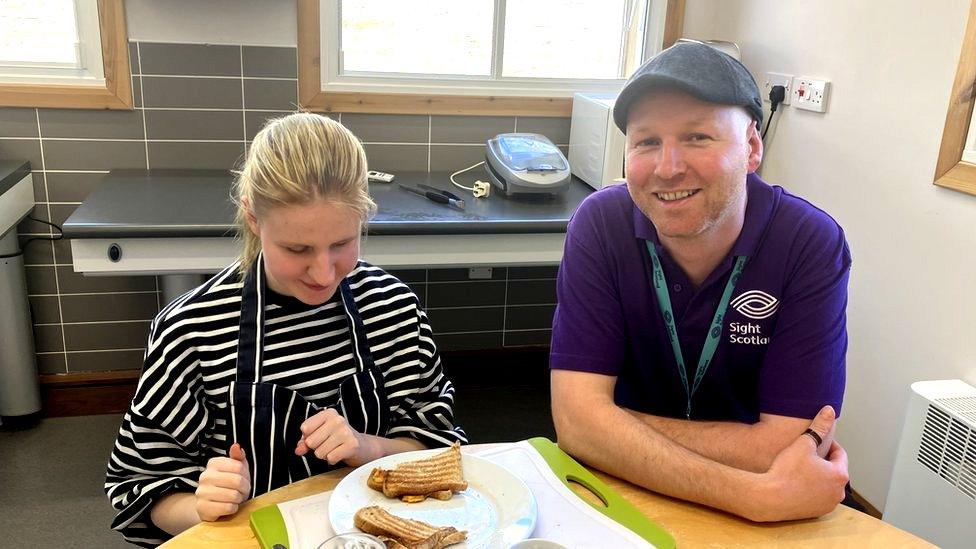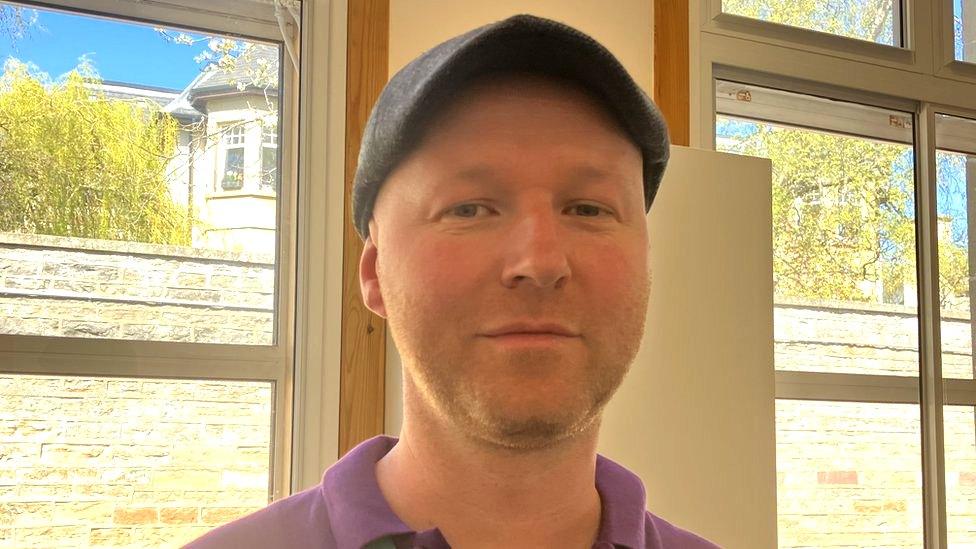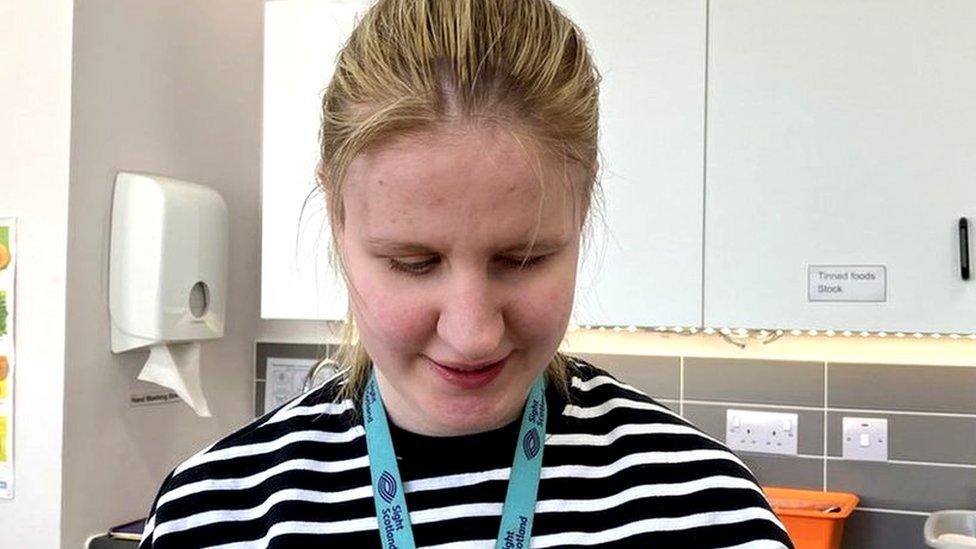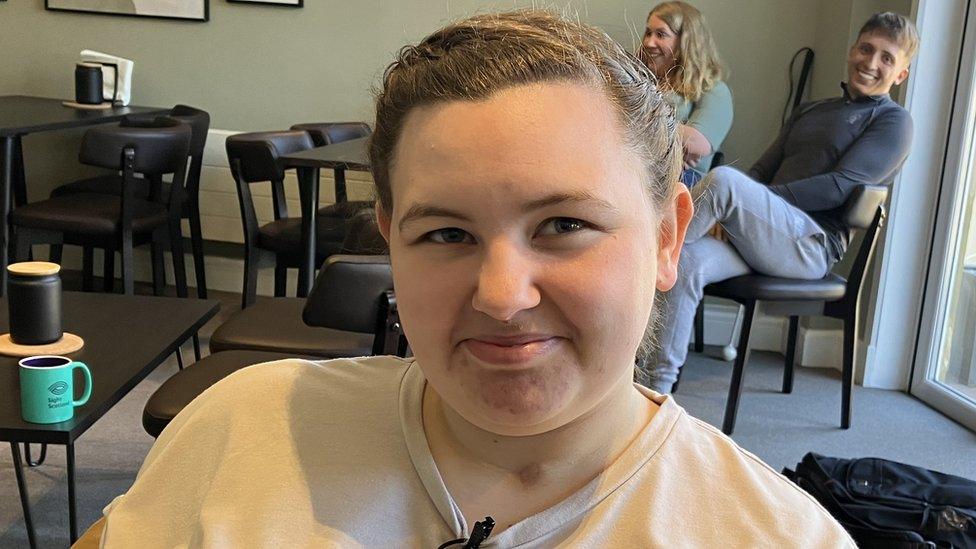Young blind people in Scotland ‘risk losing independence’
- Published

Young blind people in Scotland risk losing their ability to live independently due to a lack of trained support workers, charities have warned.
They said a shortage of habilitation teachers was made worse because Scots students had to travel to England to train.
Habilitation teachers instruct blind young people on key life skills that others learn through sight, such as cooking and route planning.
Sight Scotland said there were just eight trained specialists to support about 1,200 young people in Scotland living with a registered visual impairment.
They said there was an urgent need for the Scottish government to deliver extra funding to support the development of a Scottish qualification.
A similar qualification for rehabilitation, which supports those who became blind later in life, was recently reinstated.

Cameron Henderson is currently training to be an habilitation specialist,
Cameron Henderson, who is currently in training to be an habilitation specialist, said having to commute from East Lothian to London to study, when he has a young family, was "really tricky".
It is a two-year course that is taught part-time.
"I'm having to commute down every two or three months for a week at a time," he said.
Mr Henderson, 41, said that despite the challenges he faced in accessing training, the role was vital.
"If you can help these people be as individual as possible then they can go out and meet their friends at the weekend, or they can hold down a job and look after themselves and families," he said.
"It's a huge skill to learn and a lovely thing to be part of teaching."
One of his pupils said habilitation support had been "amazing" for her.

Amy MacKenzie, who has no sight, said it had allowed her to be independent and prepare for going to college this year.
"It helps you feel independent in the community," the 18-year-old from Ayrshire said.
"For example, I'm getting taught bus travel right now, and before I didn't know how to get on the bus."
Amy, who previously attended a mainstream school but found she didn't get the support she needed, believes schools need more habilitation workers helping them.
"There's a massive demand," says Colin Hilditch, who is head of community services at Sight Scotland.
"We've got a gap in the workforce now where people that are trained may be getting older and you're not helping replace that workforce," he told BBC Scotland.
He said that students having to commute to England contributed to the Scottish shortages.
Mr Hilditch said blind young people were being denied the right support to allow them to live independently.
"It means that as these children grow up to be adults, they have not learned the skills they need to hold down a college place or job, whereas if we give them the right support at the right time we can maximise their opportunities," he said.
A Scottish government spokesperson said: "It is important that qualified support workers are available to help people with visual impairments.
"However, higher education establishments decide which courses they provide. Ministers have no direct role in these decisions."

'I was just left to it'

Leah Cameron lost her sight as a teenager
When Leah Cameron lost her sight as a teenager, she was placed in a care home for the elderly because there was no other community support available.
"They didn't offer me much, so I didn't get any rehabilitation or physio or anything like that," said Leah, who is now 20.
"I was just left to it," she said, adding that she would "constantly fall over" at the care home.
It was only after she was eventually moved to the Royal Blind School in Edinburgh that she began receiving the support she needed - and rehabilitation training.
"Before, I didn't really get out much and now I get out most days, so it's much better for my health and wellbeing," Leah said.
She now plans to go to college in the near future to study mental health, in order to "help other people get through" struggles like those she faced herself.
